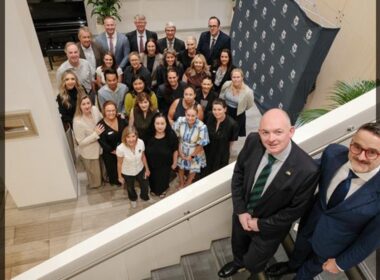The Law Council of Australia has expressed concerns that reforms and funding to the legal assistance sector could be “unduly delayed”.
A major review of the National Legal Assistance Partnership by Dr Warren Mundy, has made 39 recommendations, including increased investment in access to justice and frontline legal services for the country’s most marginalised people.
The current NLAP agreement is due to expire on 30 June 2025 and will be replaced by a new framework to be known as the Access to Justice Partnership or A2JP.
The current arrangement funds Legal Aid Commissions, Community Legal Centres and Aboriginal and Torres Strait Islander Legal Services across the country.
In his final report, Mundy calls for governments to address unmet geographic needs, to provide baseline funding for natural disaster response, an expanded list of priority client groups and measures to address Closing the Gap Priority Reforms, which he says the existing partnership failed to do.
The report also recommends a $459 million increase in funding for civil and family law, to address gaps in assistance first identified by the Productivity Commission in 2014.
It calls for increased pay for legal and non-legal staff at community, Aboriginal and Torres Strait Islander and family violence prevention legal services in the next financial year at a cost of $66 million.
And the report recommends governments abandon competitive tendering as the preferred means of allocating new funding.
In response to the report’s release, Law Council of Australia President Greg McIntyre SC said it confirms what we all knew.
“[T]hat Australians in need have been let down by a decade of inaction and that very substantial funding injections must now be realised to ensure fair and just outcomes for those who need them most,” he said.
In his report, Mundy found the proportion of funding for each service provider category had fallen.
“While not the policy intention, this is an almost inevitable outcome of the preference of governments for short-term, relatively small specific funding packages and increasing use of competitive tendering processes for allocating funding to new programs rather than allocation on an administrative basis,” the report said.
The Law Council said it welcomed the recommendations, especially those targeted towards greater investment in legal assistance, better justice outcomes for First Nations peoples and increased rates of pay.
But the council expressed concerns about the lack of response to the findings.
“[W]ith the final report having been with governments for almost three months, we are concerned that the absence of government response to the recommendations means that the implementation may be unduly delayed.
“The Commonwealth, states and territories must meaningfully partner with the legal assistance sector to urgently progress the report’s recommendations,” said McIntyre.
With current funding arrangements running out in just over a year, he said there was a “sword hanging over the heads” of legal assistance services, making it very difficult for them to make long-term plans or recruit and retain staff.




